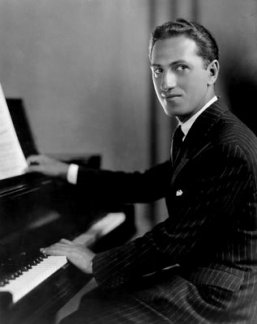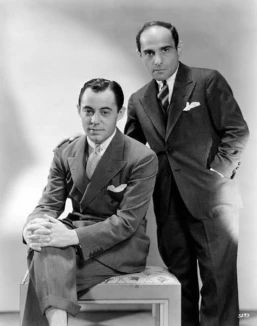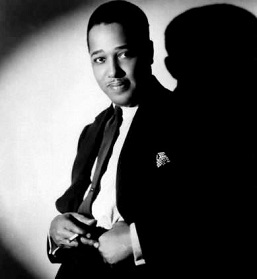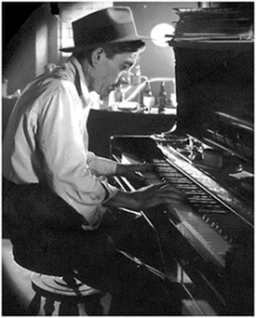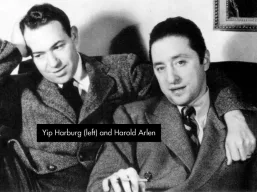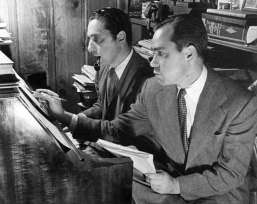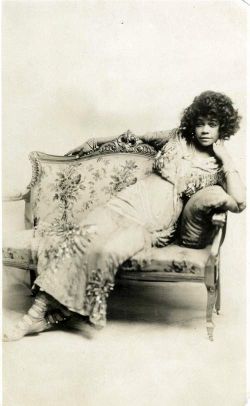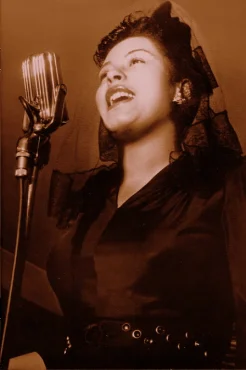On the Sunny Side of the Street
__________________________________________
On the Sunny Side of the Street (Jimmy McHugh, Dorothy Fields)*
From a WICN.org Song of the Week page**:
 [The song] was written for Lew Leslie’s International Revue (1930), another example of a show in which only the songs survive. The revue was a flop on Broadway, closing after only 95 performances. Critics called the McHugh-Fields score “pleasant,” but labeled the rest of the show “gaudy and vulgar.” The show’s failure didn’t cast a shadow on the success of “On the Sunny Side of the Street.” In February of 1930, the same month in which the Broadway show debuted, Ted [Lewis] and His Orchestra recorded the song and it peaked at #2 on the pop charts. Later that year, a recording by Harry Richman, a flamboyant Al Jolson-like entertainer who introduced the song in the revue, reached #13 on the charts. The song charted two more times, both in 1945, with a recording by Tommy Dorsey and his Orchestra peaking at #16, and one by Jo Stafford with the Pied Pipers at #17.
[The song] was written for Lew Leslie’s International Revue (1930), another example of a show in which only the songs survive. The revue was a flop on Broadway, closing after only 95 performances. Critics called the McHugh-Fields score “pleasant,” but labeled the rest of the show “gaudy and vulgar.” The show’s failure didn’t cast a shadow on the success of “On the Sunny Side of the Street.” In February of 1930, the same month in which the Broadway show debuted, Ted [Lewis] and His Orchestra recorded the song and it peaked at #2 on the pop charts. Later that year, a recording by Harry Richman, a flamboyant Al Jolson-like entertainer who introduced the song in the revue, reached #13 on the charts. The song charted two more times, both in 1945, with a recording by Tommy Dorsey and his Orchestra peaking at #16, and one by Jo Stafford with the Pied Pipers at #17.
 Immediately after publication, the song became popular with both instrumentalists and vocalists. In his book American Popular Song, Alec Wilder writes, “It’s one of the jazz musicians’ favorites, having precisely the springboard from which they love to leap. Singers, as well, love it as much for its extremely fine lyric, by Dorothy Fields, as for its music.” Louis Armstrong recorded a classic performance of “On the Sunny Side of the Street” in 1934 and the song became closely associated with him. Other notable covers include those by Nat King Cole, Dizzy Gillespie, Billie Holiday, Lester Young, Jimmy Smith and Nicholas Payton.
Immediately after publication, the song became popular with both instrumentalists and vocalists. In his book American Popular Song, Alec Wilder writes, “It’s one of the jazz musicians’ favorites, having precisely the springboard from which they love to leap. Singers, as well, love it as much for its extremely fine lyric, by Dorothy Fields, as for its music.” Louis Armstrong recorded a classic performance of “On the Sunny Side of the Street” in 1934 and the song became closely associated with him. Other notable covers include those by Nat King Cole, Dizzy Gillespie, Billie Holiday, Lester Young, Jimmy Smith and Nicholas Payton.
_____________________
1930
Ted Lewis and His Orchestra
.
1934
Louis Armstrong and his Orchestra — I thought the provider made the mistake on the credit, but it looks like the label has “Hug” instead of “McHugh”.
.
 from the biography at allmusic.com by Scott Yanow
from the biography at allmusic.com by Scott Yanow
Lionel Hampton was the first jazz vibraphonist and was one of the jazz giants beginning in the mid-’30s. He has achieved the difficult feat of being musically open-minded (even recording “Giant Steps”) without changing his basic swing style. Hamp started out as a drummer, playing with the Chicago Defender Newsboys’ Band as a youth. His original idol was Jimmy Bertrand, a ’20s drummer who occasionally played xylophone. Hampton played on the West Coast with such groups as Curtis Mosby’s Blue Blowers, Reb Spikes, and Paul Howard’s Quality Serenaders (with whom he made his recording debut in 1929) before joining Les Hite’s band, which for a period accompanied Louis Armstrong. At a recording session in 1930, a vibraphone happened to be in the studio, and Armstrong asked Hampton (who had practiced on one previously) if he could play a little bit behind him and on “Memories of You” and “Shine”; Hamp became the first jazz improviser to record on vibes.
1937
Lionel Hampton and his Orchestra – recorded 26 April 1937; issued on Victor 25592, b/w “I Know That You Know”
Musicians:
Lionel Hampton – vibes & vocal
Johnny Hodges – soprano & alto saxes
Buster Bailey – clarinet
Allan Reuss – guitar
Jess Stacy – piano
John Kirby – bass
Cozy Cole – drums
.
1941
Benny Goodman Sextet with vocals by Peggy Lee – recorded 24 Dec 1941
.
.
1944
Lester Young and band from Jammin’ the Blues (1944), vocal by Marie Bryant
.
1945
Tommy Dorsey and his Orchestra – vocals by The Clark Sisters (aka “The Sentimentalists)
.
Jo Stafford with The Pied Pipers and Paul Weston and His Orchestra
.
1946
Nat King Cole Trio – Cole recorded the song many times. I’m not sure of the date on this one.
.
1957
Dizzy Gillespie with Sonny Rollins and Sonny Stitt on the album Sonny Side Up
________________________________________
* Jazzstandards.com notes that some have expressed doubts about the authorship of this song and two others credited to McHugh-Fields, saying:
There are rumors that “On the Sunny Side of the Street,” “I Can’t Give You Anything But Love,” and “If I Had You” were originally Fats Waller compositions, ones he had composed and then sold the rights to for quick cash.
However, the “evidence” put forward in support of this view is shaky to say the least:
- a. rumors
- b. The Dana Library Institute of Jazz Studies collection of Waller memorabilia has a document in the hand of Waller of a song which was copyrighted in McHugh’s name in 1935.
The song titles mentioned as being among the early drafts found in the aforementioned Waller collection do not include any of the three titles mentioned above. Nor does JazzStandards.com demonstrate that the Waller manuscripts have any relationship to the three songs cited as of questionable authorship.
There are evidently numerous reports by associates of Waller of him selling songs for a pittance (even $2.50 according to the article at WICN.org cited above) when he needed ready cash. But why go to such lengths to question the legitimacy of this particular copyright, and those of two other standards while you’re at it, meanwhile dragging McHugh’s reputation through the mud, with idle speculation based on hearsay and irrelevant evidence? If there’s real evidence, then let’s hear it.
** Sometime in 2011, WICN evidently removed their Song of the Week feature pages or made them private.




